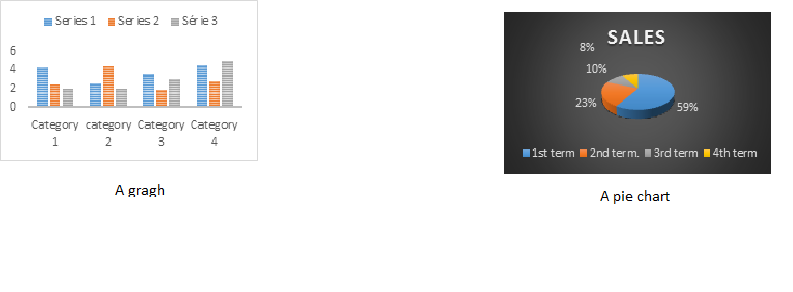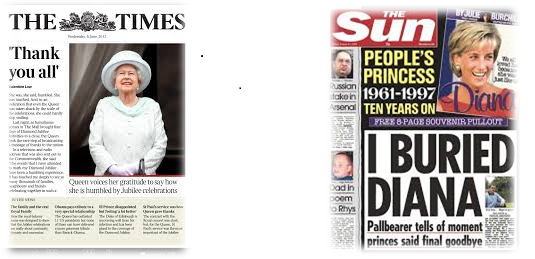Surveys and the Pres
Unit Two is entitled “Our Findings Show”. It mainly deals with reporting as your project consists in conducting a survey and “reporting” is one of its techniques.
Surveys are conducted by companies, ministries, universities and newspapers. Their results tell us more about the changes in society and economic development. Today, surveys are important in making decisions either by companies or individuals.
I. What is a survey?
A survey is a set of questions that you ask a large number of people in order to find out about their opinions or behaviour.
II .How do you conduct a survey?
a) Choose the people that will give you information .We call these people informants: young people/ housewives /teenagers /the elderly.
b) Produce a questionnaire that you will give to the informants.
c) Collect the informants’ answers.
.d) Analyze the answers referring to statistics using graphs or pie charts
e) Report your findings.


National newspapers are papers sold in all parts of Britain. They can be divided into two main groups: quality papers and popular papers.
Quality papers are also called serious papers. They report national and international news very thoroughly. The news is objective.They also publish articles on many general subjects. Some examples of serious papers: The Times, The Guardian and the Daily Telegraph.
The popular papers are also known as tabloids. They tend to have sensational and subjective news headlines, and publish” personal” articles which shock and excite. Some famous tabloids: the Mirror and the Sun.
Choisir la réponse correcte de la liste
Choose the right answers
1. Quality papers publish:****
2. Popular papers report about: ****
3. Tabloids are:****
4. Quality papers are : ****
1. Sensational (adjective): intended to interest, excite, or shock people - used in order to show disapproval.
Example:
Sensational headlines attracted my attention, so I bought the paper.
2. Reliable (adjective) : someone or something that is reliable can be trusted or depended on.
Example:
You can rely on his analysis. He is a reliable journalist.
3. Headlines (noun): titles of newspaper reports, which are printed in large letters above the reports.
Example :
His name was in the headlines.
4. Objective (adjective): based on facts, or making a decision that is based on facts rather than on your feelings or beliefs [≠ subjective]
5. Subjective (adjective): a statement, report, attitude etc, that is subjective is influenced by personal opinion and can therefore be unfair [≠ objective]
- إختبارات
- 10
- الأجوبة الصحيحة
- False
- الأجوبة الخاطئة
- False
- مجموع النقاط
- False
المراتب الخمس الأولى في Quiz
- Abadou op18
- 220 نقطة
-

- Fatiha Boudoukha
- 200 نقطة
-

- raouf boudriga
- 200 نقطة
-

- نور قاسم
- 197 نقطة
-

- Mädrïdä MïLä
- 177 نقطة
-
- NOZU dd
- 177 نقطة
-

- Belkacemi Yahia
- 171 نقطة
-

- None None
- 155 نقطة
-

- Ranim Mohammedi
- 131 نقطة
-

- Kawther Benabbas
- 112 نقطة
-

المراتب الخمس الأولى في التمارين
- None None
- 4 نقطة
-

- mosttafa dazza
- 4 نقطة
-

- Douaa Babahamed
- 4 نقطة
-

- Achraf Madani
- 4 نقطة
-

- nina bll
- 4 نقطة
-










